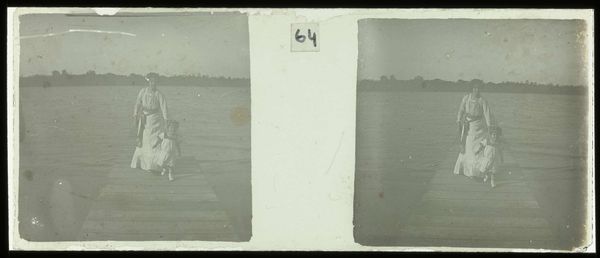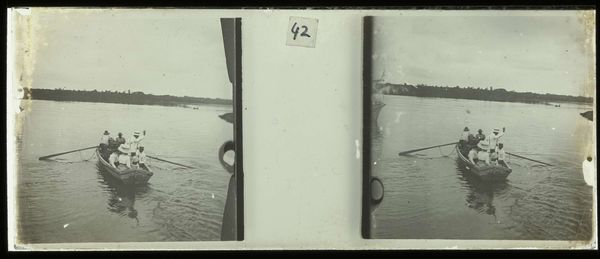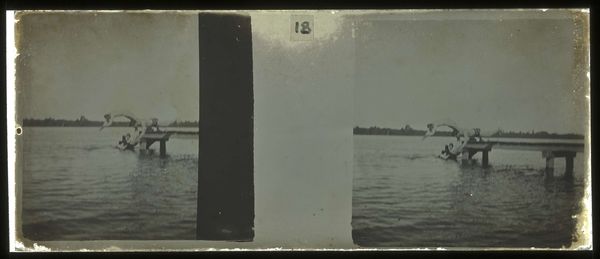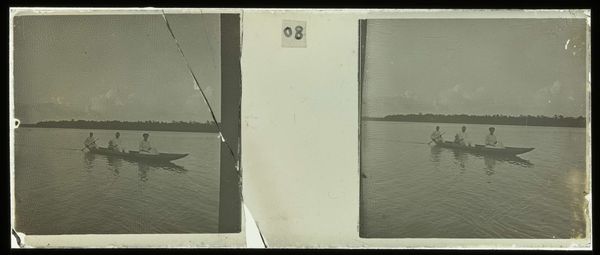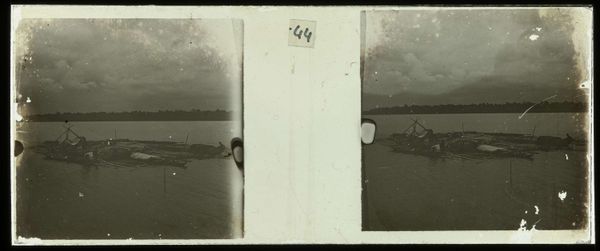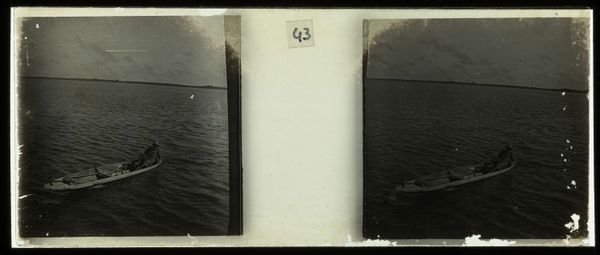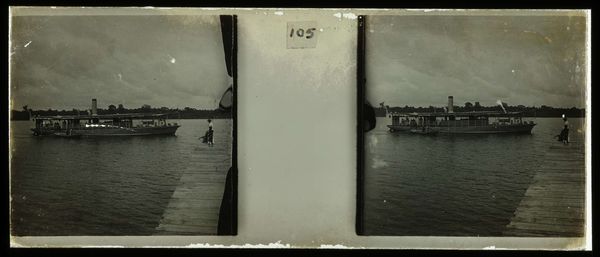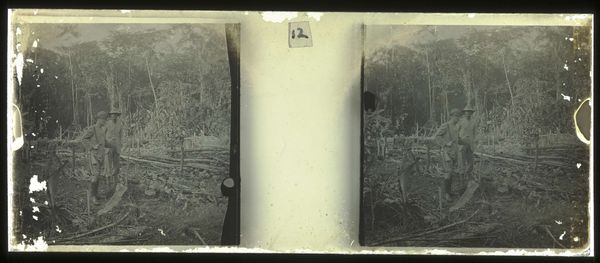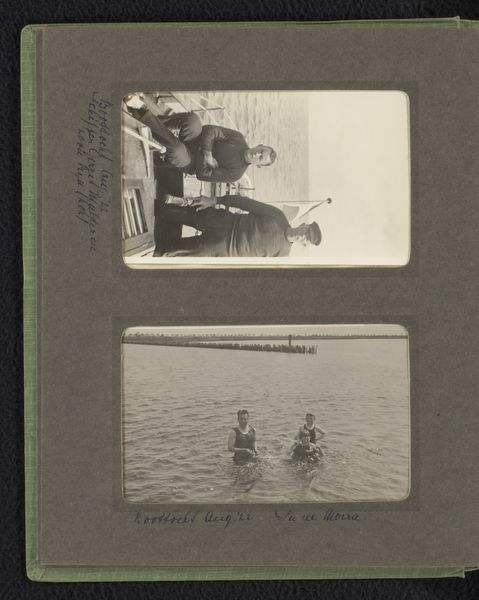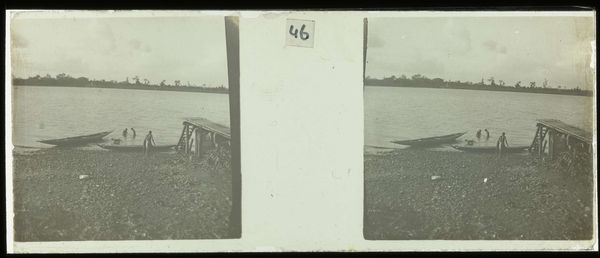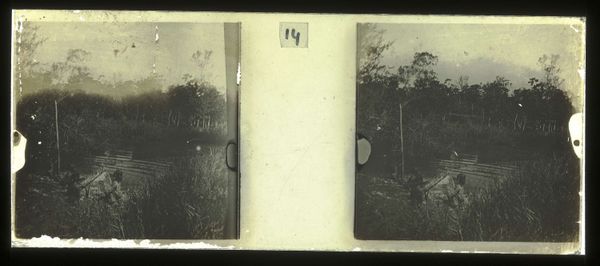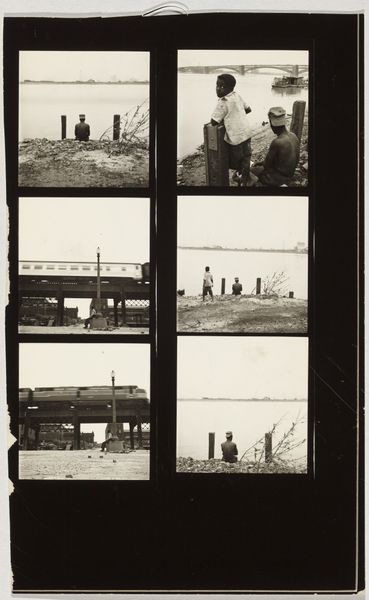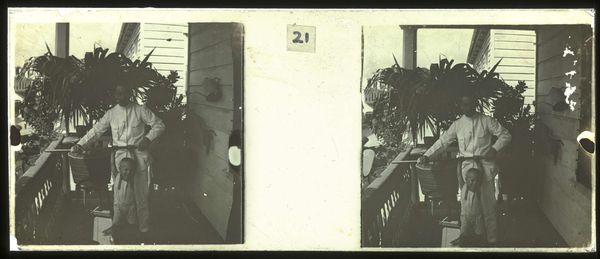
De rivierboot Prins Hendrik verlaat plantage Accaribo 1913 - 1930
0:00
0:00
theodoorbrouwers
Rijksmuseum
photography
#
landscape
#
photography
#
realism
Dimensions: height 4.5 cm, width 10.5 cm
Copyright: Rijks Museum: Open Domain
Curator: Looking at this photograph, there's a wistful kind of beauty in its simplicity. Editor: Ah, yes. This photograph, entitled "De rivierboot Prins Hendrik verlaat plantage Accaribo," by Theodoor Brouwers, was taken sometime between 1913 and 1930. It’s currently held at the Rijksmuseum. The medium is listed simply as photography, but the albumen print on paperboard speaks volumes. Curator: An albumen print... a technique born of resourcefulness. The egg whites create this glossy sheen, but the overall effect here is strangely subdued, almost melancholic, don’t you think? Editor: The albumen binds the silver, fixing this landscape to its material support. We can read the subject here, however: a steamboat churning the river, leaving behind a plantation—presumably carrying goods or people, labor or profits—all driven by the workings of extraction, trade, and technological advances, I see the social structures imbedded in the emulsion itself. Curator: See, I'm drawn to the gaze of the figures in the foreground, their bodies looming larger and their clothes made soft as their gazes pierce through time. It makes me wonder about who is going and who is staying... Editor: This photograph captures labor mobility and power relations through the movement of the riverboat and stillness of the planted bodies. Curator: Yes, yes. There’s such vulnerability in those tones and textures. Perhaps Brouwers was suggesting the complicated emotional terrain that existed alongside industrial progress and this idea of a "modern" age... like nostalgia and mourning mixed together in a strange brew. Editor: And captured within the confines of capital. You have those social, human dynamics etched into the very photographic chemistry of the work. Curator: Perhaps he saw the beginning of the end for this old world? Editor: The albumen itself, derived from mundane commodities like eggs, signifies the transformation of natural resources into commodities under capitalism. A humble material transformed. A photo-fossil of history's layers. Curator: Yes, well, looking at it this way, it all takes on an additional emotional weight, and that steamer drifts out into our own moment carrying all kinds of stories. Editor: The steamer and that albumin serve to underscore how everything around us—every image, object, landscape—is formed, in large part, through our connection to industry.
Comments
No comments
Be the first to comment and join the conversation on the ultimate creative platform.
